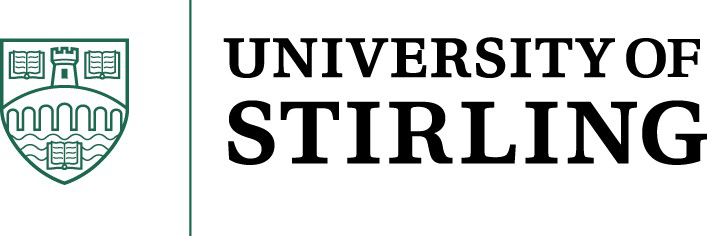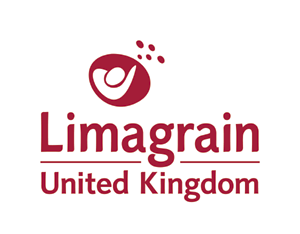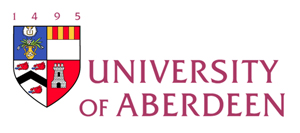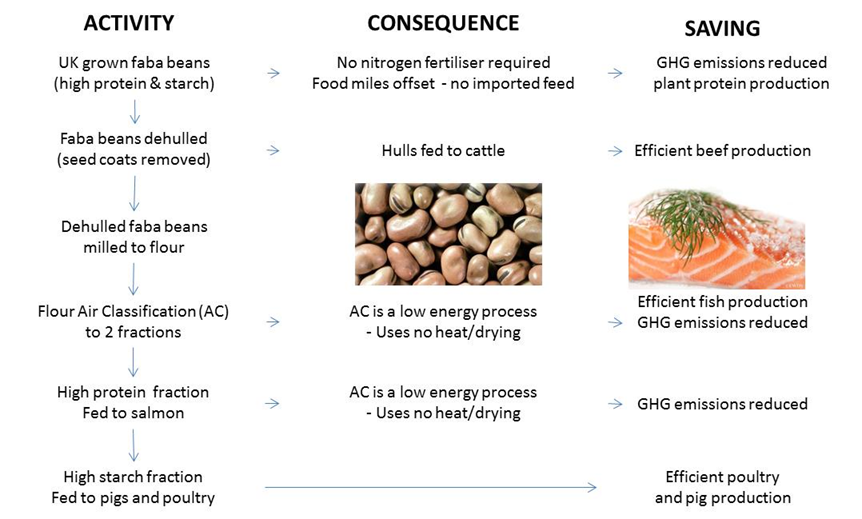Welcome
Beans4feeds represents a £2.6m research investment and is an 11 partner industry led and co-funded research project with the UK's Innovate UK. Research started on 1 January 2012 and will run for four years.
 |
 |
 |
 |
 |
  |
 |
 |
 |
The project aims to develop air-classification technology for faba beans to improve the economic and environmental sustainability of UK food production and food security.
Faba beans may be grown throughout the UK and are highly nutritious owing to their high starch and protein content. In the UK faba beans have been commonly used to feed animals such as cows and they have not yet been developed for pig, poultry and fish production. However, the beans4feeds project aims to establish ‘air classification’ as a means by which flour milled from UK grown faba beans may be separated into two fractions.
One fraction is protein enriched for use in feeding trials of Atlantic salmon and the other fraction is starch enriched for pig and poultry feeds. The research programme also includes breeding new faba bean varieties that are better suited to the air classification approach.
Flow-diagram summary of the beans4feeds project and air classification (AC)

Cropping faba bean help support sustainable agriculture as the crop requires no nitrogen fertiliser. The nitrogen requirement of faba beans is met using nitrogen obtained from air using a natural process called ‘biological nitrogen fixation’.







